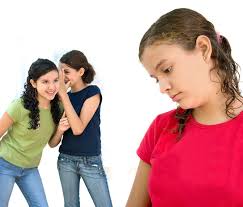For the next few months my blog will focus on answering your parenting questions about raising tweens and teens as well as letting you in on some of the letters I get from tweens and teens. So if you’ve got something on your mind that you could use help with, send it to AskAnnie. (Of course it will be posted without any names, so no worries there.)
Today’s question: How do I keep my 11 yr old away from a bad friend?
First you’ve got to realize that your definition of a “bad” friend might not be the same as your child’s. In fact, if your child has a history with this friend and is very attached, trying to pry her away will most likely land you smack in the middle of an ugly, pointless power struggle in which you will become the bad guy.
The most effective way to handle something like this is to help your child develop standards for what constitutes a good friend vs. the other kind. You can do it by making observations about what you see. For example, you might say, in a neutral voice, “You know, honey, I’ve noticed, when you come home from Jack’s house you’re usually in a bad mood. Sometimes you take it out on your sister. Sometimes you’re rude to me. I’m wondering what’s going on here?” Right then and there, you create a safe environment for your child to think about what you’ve observed and to let you in on where this chronic “bad mood after being with Jack” might be coming from.
Another approach is to share what you see when the two kids are together. You might say something like this, “I notice when Jack comes over, he seems to be bossing you around. Sometimes I hear bad language and I’m not happy with that. It seems like you two spend more time fighting than getting along. What’s up with that?” After an observational statement like this, simply close your mouth and listen to what your son or daughter has to say.
These techniques let you inside the mind of your child more effectively than provocative statements. (“You don’t actually like that awful boy, do you?!!”) Loaded questions like that don’t go over well with tweens and teens.
If you have good reasons, you are also perfectly within your rights to say, “Your friend is no longer welcome in our home and here’s why…” That conversation can be an eye-opener for your child and provide lots of food for thought.
Bottom line, the best way to influence tweens and teens in the direction of more positive friendships is to make neutral observations so the conversation can open up rather than shut down. That’s how to infuse your child with essential information about what it means to be a real friend.
I hope this helps. And until next time, happy parenting.












